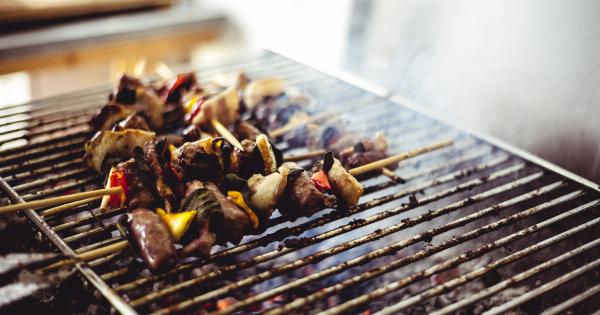Gastroesophageal reflux, commonly known as heartburn, is a medical condition that occurs when acidic stomach contents flow back into the esophagus.
This can cause a burning sensation in the chest, throat, and mouth, along with other unpleasant symptoms like difficulty swallowing and regurgitation of food and liquid. While gastroesophageal reflux can be caused by a variety of factors, including obesity, smoking, and pregnancy, diet is also a major contributing factor. In this article, we will discuss the foods to avoid when managing gastroesophageal reflux.
Foods to Avoid
Fatty Foods
Foods like fried chicken, pizza, and hamburgers contain high levels of fat, which can put pressure on the lower esophageal sphincter, a muscle that normally prevents stomach acid from moving into the esophagus.
When this muscle is weakened by high-fat foods, it can allow acid to flow upward, causing heartburn and other symptoms of gastroesophageal reflux. If you have gastroesophageal reflux, it is best to avoid fatty foods as much as possible.
Citrus Fruits
Lemons, oranges, and grapefruits are all examples of citrus fruits that can worsen gastroesophageal reflux. These fruits are acidic and can irritate the esophagus, making it more susceptible to damage from stomach acid.
If you enjoy these fruits, try eating them in moderation and pairing them with non-acidic foods like yogurt or oatmeal.
Caffeine
Caffeine is a stimulant that can relax the lower esophageal sphincter, allowing acid to flow into the esophagus. If you have gastroesophageal reflux, it is best to avoid or limit your intake of caffeine-containing beverages like coffee, tea, and soda.
If you need a pick-me-up, consider drinking decaf coffee or herbal tea instead.
Tomatoes
Tomatoes and tomato-based products like spaghetti sauce and ketchup are highly acidic and can trigger gastroesophageal reflux. If you enjoy these foods, try substituting with less acidic alternatives like alfalfa sprouts or eggplant.
Peppermint
While peppermint is often recommended for its digestive benefits, it can also cause gastroesophageal reflux in some people. This is because it can relax the lower esophageal sphincter, allowing stomach acid to move into the esophagus.
If you have gastroesophageal reflux, it is best to avoid peppermint tea, candies, and other products.
Spicy Foods
Spicy foods like hot peppers, curry, and chili can irritate the esophagus and trigger gastroesophageal reflux. If you enjoy spicy foods, try eating them in moderation and pairing them with less irritating foods like rice or bread.
Onions and Garlic
Onions and garlic are often used to flavor food, but they can also cause gastroesophageal reflux in some people. This is because they can weaken the lower esophageal sphincter, making it easier for stomach acid to flow into the esophagus.
If you have gastroesophageal reflux, try substituting onions and garlic with other herbs and spices like ginger or parsley.
Chocolate
Chocolate is a popular treat, but it can also worsen gastroesophageal reflux. This is because it contains caffeine and can relax the lower esophageal sphincter, allowing stomach acid to flow into the esophagus.
If you have gastroesophageal reflux, it is best to avoid chocolate or choose low-fat, non-chocolate alternatives.
Alcohol
Alcohol can relax the lower esophageal sphincter, allowing stomach acid to flow into the esophagus. In addition, it can increase the production of stomach acid, making gastroesophageal reflux symptoms worse.
If you have gastroesophageal reflux, it is best to avoid or limit your intake of alcohol.
Mint
Mint can relax the lower esophageal sphincter, causing gastroesophageal reflux in some people. This includes peppermint, spearmint, and other types of mint. If you have gastroesophageal reflux, it is best to avoid these types of mint products.
Conclusion
If you have gastroesophageal reflux, it is important to manage your symptoms by avoiding foods that can trigger them. This includes fatty foods, citrus fruits, caffeine, tomatoes, peppermint, spicy foods, onions, garlic, chocolate, alcohol, and mint.
By making these small changes to your diet, you can reduce your risk of experiencing gastroesophageal reflux and improve your overall digestive health.






























